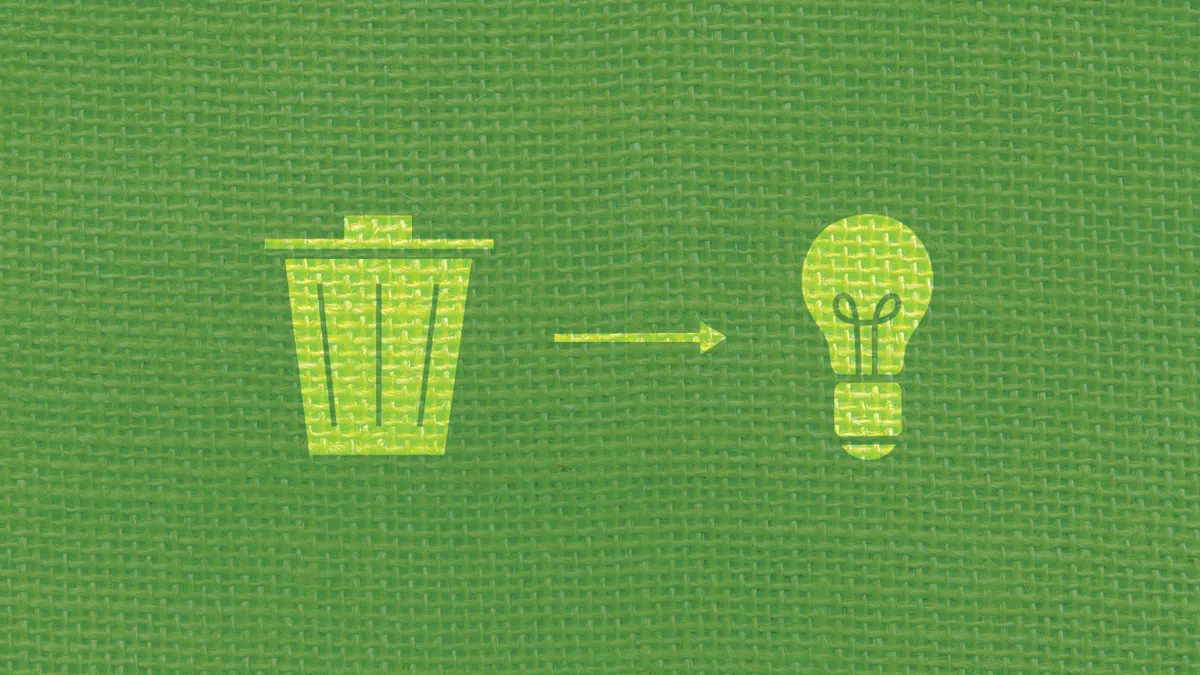Chemical recycling may be the way of the future, though by the time anyone realizes that, we may all be calling it something else.
Leading names in the plastic world shared their vision for a new alternative to mechanical recycling at the SPC Advance conference in Boston last month that, if scalable and cost-effective, could have big implications. This alternative will be especially relevant for anyone involved in setting sustainability goals — from corporate targets to local "zero waste" plans — or helping achieve them.
Here are a few areas to watch as the concept develops:
What does chemical recycling mean and how will it be pitched to the public?
This term has been coming up more often in the packaging world and is used to describe a broad range of processes. The main thing to keep in mind is, unlike a mechanical recycling process — which can result in plastic flake or pellets — this process goes all the way down to the monomer level. That unlocks more potential in terms of the inbound stream as well as the resulting product.
- "The goal of chemical recycling is to create sort of infinite recycling so there’s no down-cycling and we can keep reusing these products and really keep the molecules in action," said Priyanka Bakaya, founder and CEO of Renewlogy.
- Bakaya's company currently does this in Salt Lake City, Utah, sourcing material from the HeftyEnergy Bag program in Idaho, among other areas, to create various fuel products. Subsidized in part by a division of DowDuPont, this program is seen as a way to grant the recyclability label to a new swath of products, while also taking advantage of an otherwise low-value mixed stream of material.
- "We now have the opportunity to create brand new polymers with the same performance as virgin polymer, but using recycled material," said Jeff Wooster, global sustainability director for Dow Packaging and Specialty Plastics. “So instead of trying to collect only Snicker bar wrappers, I can now collect candy bar wrappers and cheese pouches and trays and films and bags and wrappers."
How does consumer sentiment influence this trend?
Multiple panelists referenced growing media attention around plastics as a key driver for the interest in chemical recycling. If people expect brands to keep making packages with the same attributes and affordability, while also showing action on issues such as ocean pollution or recycling, this is likely the route they will take.
- Bakaya explained, "We can only push it so far" when it comes to what's practical in a mechanical recycling system. "To really significantly move the needle right now, we need chemistry." Wooster echoed that sentiment, calling it a complementary solution to current systems.
- Paul Augustowski, a senior vice president at LyondellBasell, said the "stigma" and "fear" around plastics is being taken very seriously now. "Without this kind of a solution we’ll never get to 100% diversion from landfill and from oceans," he said, referencing aspirational sustainability targets
- "Right now the economics aren't really pushing us in that direction, until we’re all scared that people are just going to stop using plastics and it’s actually a threat to their businesses," said Bakaya, citing expanded polystyrene foam as an example of public attention. “I think we’re almost getting to that point with plastics.”
What's next to make this initiative scalable and viable?
Panelists said they hadn't quite reached the tipping point where feedstock made from this process could compete with material created from natural gas for virgin plastics. Multiple regulatory and branding questions also lie ahead.
- All agreed a tipping point might be reached soon if consumers were also willing to pay more for products made from, or destined for, this process. “I think that we fill find a way to make the most economical solutions work, but some of the cost is going to have to be shared across the chain," said Augustowski.
- To truly take off, the plastics industry will need to work with regulators to decide where this process fits in the waste hierarchy since it's not energy recovery, and it's not mechanical recycling. The fact that chemical recycling can encompass multiple processes further complicates things, in the view of some government officials.
- Ongoing pressure from environmental groups calling for a broad reduction in plastic usage, along with criticism of programs such as the Hefty EnergyBag for propping up the habit, will remain a factor. Wooster referenced a proposed amendment to the Basel Convention that would change plastic's waste classification, calling it "very damaging to the global marketplace."
- One additional objective will also be finding a better way to describe their work. “In terms of an end consumer, they don’t want to hear anything about chemicals," said Bakaya. “We need to find a different phrase than chemical recycling," said Wooster, "because chemicals scare people.”










